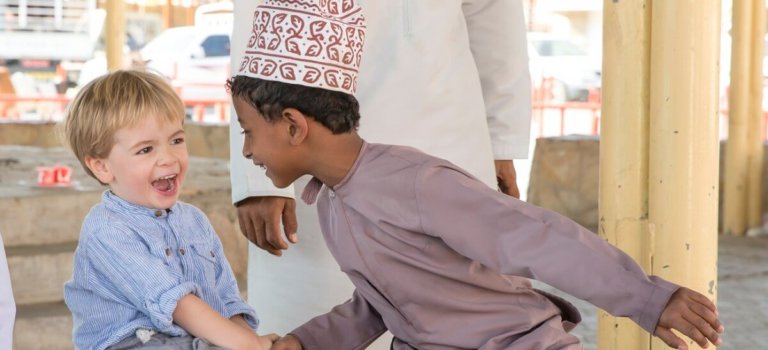
Colleges and universities could be where the US finds a solution to its religious and racial discrimination problems, according to a recent report.
The study, conducted by the Interfaith Youth Core, found that friendships across religious and secular
differences, promote positive attitude change towards the world view of one’s friends and all other worldviews.
Making interfaith friendships during one’s first year in college led to “significant gains in appreciative attitudes toward that group compared to those who do not make such a friend,” the study found.
Many students come to US colleges and universities in hopes of developing a global mindset and meeting a diverse set of people. While the US is a melting pot of cultures, and religious liberty and tolerance central to America’s founding, the reality is religious and racial discrimination is a fact of life for many minorities living in the US today.
In a Pew Research study this year, most American adults (82 percent) say Muslims are subject to at least some discrimination in the US today. Among American Muslims themselves, a 2017 survey of Muslim Americans found most have experienced specific instances of discrimination, including being treated with suspicion, singled out by airport security or called offensive names.
There are many root causes and solutions to religious discrimination, from upbringing to peer pressure from wanting to scapegoat others for our own problems to media influences.

Religious and racial discrimination is a fact of life for many minorities in the US today. Source: Shutterstock
For this study, appreciative attitudes are defined as whether students gained a positive outlook or a sense of commonality with people of other worldviews. It also considers whether they agree that people of that worldview make positive contributions to society and are ethical as individuals.
When one gains a close friend from another worldview, the impact is “at times close to double” the the amount of this appreciative attitudes, compared to those who didn’t.
“For example, the proportion of students who are highly appreciative of Buddhists rose by 22 percentage points among those who had gained a close Buddhist friend in the first year. Among those who did not gain a close Buddhist friend, the change was much lower at nine percentage points,” the report said.
“Likewise, twice as many students who gained a close Latter-day Saint friend became highly
appreciative (24 percent) in the first year compared to those who did not (12 percent).”
Making a close Muslim friend would also made college students more appreciative of Buddhists, Evangelical Christians, Hindus, Jews, Latter-day Saints, atheists and Muslims at the same time. This concurs with other research which has found that friendships between people of different backgrounds can also reduce prejudice among those outside the relationship.
“In other words, even if a student has no friends of other cultural or religious backgrounds, as long as they have one friend who does have that sort of friendship, the student may be less prejudiced themselves. In this way, the prejudice reduction that comes from friendship has the potential to spread
throughout a college student’s social network,” according to the report.
Liked this? Then you’ll love…
In US colleges, Muslim students have most diverse set of friends
Lonely no more: How parents and teachers can help students make friends in school







